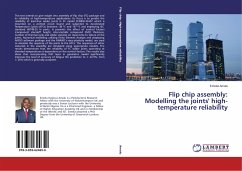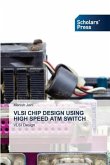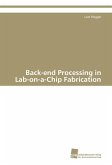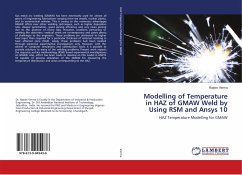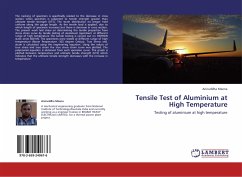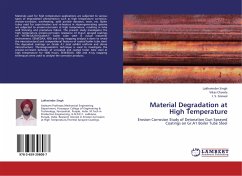This text intends to give insight into assembly of flip chip (FC) package and its reliability at high-temperature applications. Its focus is to predict the reliability of lead-free solder joints in FC model FC48D6.3C457 which is mounted on a printed circuit board and subjected to Accelerated Temperature Cycles (ATCs) between -38 ºC and 157 ºC and employing IEC standard 60749-25 in parts. It presents the effect of control factors (component standoff height, inter-metallic compound (IMC) thickness, number of thermal cycle and solder volume) on mean-time to failure of the joints. Numerical modelling utilising Finite Element Analysis and employing ANSYS software package and the ANAND s visco-plasticity model, are used to simulate the response of the joints to the ATCs. The responses of other materials in the assembly are simulated using appropriate models. The results demonstrate that the reliability of FC solder joints operating at elevated temperatures is dependent on the control factors. The results also show that incorporating IMC layer in geometric model significantly improves the level of accuracy of fatigue life prediction to ± 22.5%, from ± 25% which is generally accepted.
Bitte wählen Sie Ihr Anliegen aus.
Rechnungen
Retourenschein anfordern
Bestellstatus
Storno

